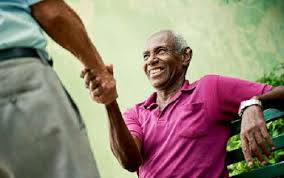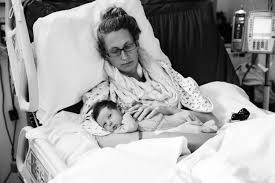
Doctors urge FG to protect senior citizens from abuse
Healthcare professionals who specialise in managing and caring for the elderly have urged the federal government to enact legislation that shields the nation's old population from mistreatment.
The World Health Organisation recently released a research predicting that by 2050, 320 million senior people worldwide would be at risk of abuse. This information was discussed by the experts against this backdrop.
The geriatricians underlined the necessity of broad policy reforms, including more government-built senior housing, increased financing, and stricter enforcement of the law to stop elder abuse.
To address the abuse, they clarified, greater safeguards against abuse at home, in communities, and in social homes, as well as improved training for carers and support agencies, were essential.
Remember that the Senior Citizens National Centre on August 2, 2023, in Abuja, held its maiden dialogue to discuss issues affecting senior citizens and how their experiences can be leveraged for increased national development and effective service delivery.
In order to address the needs of the elderly population in the nation, the Federal Government created the National Senior Citizens Centre and the National Policy on Ageing, according to former Minister of Humanitarian Affairs, Disaster Management, and Social Development Sadiya Farouq.
In any relationship where there is an expectation of trust, the abuse of older persons, also known as elder abuse, is defined by the WHO as any one-time or recurring act, or lack of appropriate action, that results in injury or suffering for the older person.
The international health organisation underlined that various forms of violence, which include financial and material abuse, abandonment, neglect, and severe loss of dignity, are violations of human rights. various also include sexual, psychological, emotional, and physical abuse.
In several interviews, the concerned parties implored the government to make it illegal for anybody to mistreat an elderly person—at home, on the streets, in assisted living facilities, or in public—in order to prevent abuse.
Dr. Stephen Okonkwo, a private geriatrician at the Spring City Hospital in Ogidi, Anambra State, stated that it was imperative to enforce comprehensive regulations to safeguard the elderly.
Nigeria should be precise and make sure those who mistreat elderly people face consequences from the law, according to Okonkwo, even though the country has many laws that may be used to discourage elder abuse.
He stated, "There have been instances of elderly patients being admitted to hospitals due to maltreatment." To put an end to this, society must also take certain measures. The perpetrators should be apprehended and sent to the police for appropriate action is needed.
“In addition to that, if we must avert this looming problem which has become a serious crisis in the country, the government agencies must also be trained to recognise and respond to elder abuse cases.
“In doing this, community awareness is essential. Educational campaigns can inform the public about the signs of elder abuse and promote respect for older individuals.
“It is not only when they are beaten that the abuse has taken place, no. Depriving them of their rights is another form of abuse. Abandoning them in the family house in the village in the hands of a total stranger is another sign of abuse.
“This is because there is nobody that can take care of these elderly people better than their children. So the children can also abuse their parents through this means without knowing.
“So, engaging local leaders and influencers in these campaigns can help shift cultural attitudes that may normalise or ignore abuse.”
He went on to say that older people require support networks, and these ought to be reinforced.
"This involved setting up additional senior citizen centres and support systems so that senior citizens could have assistance and company. Social services that provide resources and counselling to older adults and their carers must be easily available.
"Education is yet another important field. Abuse within households can be avoided by giving families the tools and instruction they need to care for senior family members in a responsible and caring manner.
Promoting community engagement and alertness can aid in the protection of senior citizens. He continued, "We should encourage our neighbours and fellow community members to report any suspected abuse to the proper authorities.
In addition, Dr. Cynthia Okafor, the founder of the Vision Home and a consultant gynaecologist and obstetrician at Epe General Hospital in Epe, Lagos, stated that in Nigeria, preventing elder abuse can be efficiently achieved by a combination of community support, education, and legal measures.
Okafor remembered how many old women she had treated had been sexually assaulted by someone in their immediate vicinity.
She observed that it has become normal for children to leave their old parents behind in the nation, particularly for those who were labelled witches or wizards and left behind as a result.
"These individuals are being abandoned just when they most need their children—the people who battled to raise their kids to adulthood.
There are occasions when people will say that one spiritual leader informed them that their parents are the cause of their problem. That is enough to put them off. So we need education and awareness to get these people’s minds sound again and take care of their elderly in society. These are the only ways to avert the prediction,” she added.
According to the WHO, the prevalence of abuse of older individuals is particularly high in nursing homes and long-term care institutions, with an additional estimate of one in six persons aged 60 and over reporting having suffered abuse in the community in the previous year.
The report stated that elder abuse is a serious public health issue that requires immediate response, noting that the number of persons in the world who are 60 years of age or older would double, from 900 million in 2015 to almost two billion in 2050.





